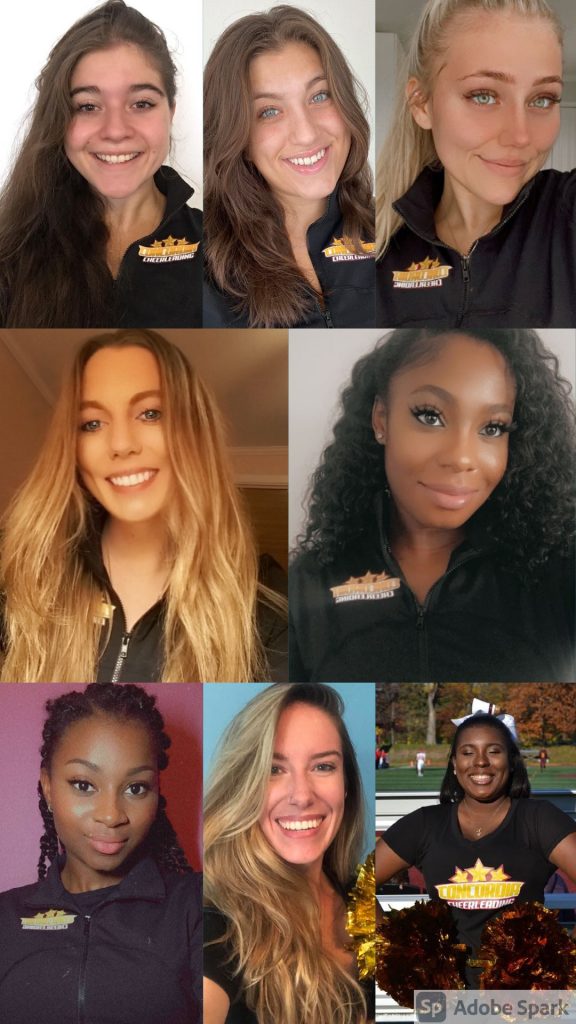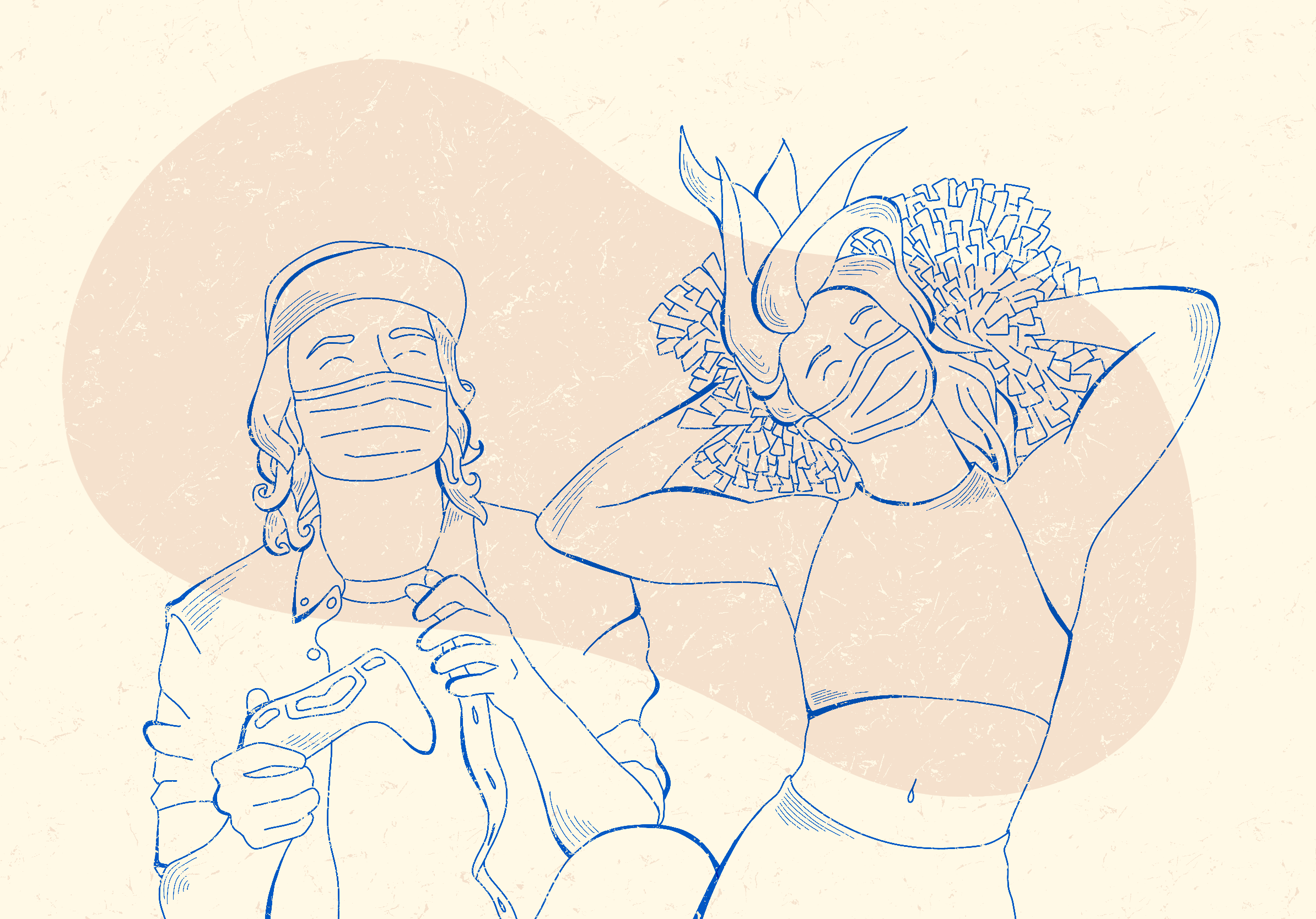From esports to cheerleading, the clubs at Concordia have a lot to offer
For many students, a big part of the university experience is joining a club. Participating in any club can help students gain resume-worthy skills, build new and long-lasting friendships, and really just make life at university more memorable.
Clubs are facing hurdles to engage new students and continue their legacy during this “new normal” year. The Concordian spoke to several Concordia clubs to ask how they’re adjusting to the changes the pandemic has brought on.
The Concordia Debate Society was able to quickly switch their weekly meetings to an online platform when quarantine began. Violet Maxfield, Vice President of Internal External for the club said that she was able to continue participating in the debate practices even when she moved back home to Boston in March.
Maxfield said the adjustment has been challenging for new members.
“For people who don’t know what debates are like in person and they’re just there online, it’s just more difficult, because it doesn’t feel as fun as it normally does,” she said.
Omar Salem, Vice President of Training for the Concordia Debate Society, added to the issue, saying, “now our biggest concern is trying to keep them engaged, and trying to adapt our program … so it’s more encouraging to the more novice debaters.” Salem explained that meetings on Discord are organized to help answer questions and guide new recruits.
“We’re trying to tailor those meetings … so that they’ll be able to learn, improve, [be] more professional, and gain some more expertise.”
Debate teams operate in a structured style, with two opposing teams having 15 minutes to prepare and present arguments that are either for or against a motion. Motions can be on any topic from philosophical to scientific, said Salem.
The team practices in weekly online meetings on Discord, and sometimes on Zoom, to prepare for tournaments against other universities. Isaac Finkelstein, the Executive of Communications for the Concordia Debate Society said, “the pluses are that anyone can join from anywhere, and it’s more convenient.”
For the Concordia Esports Association, the transition to a completely online platform was not as easy as it may seem. President of the Concordia Esports Association Patryk Surowiak argued that it would be wrong to assume gamers haven’t been affected by the changes in the pandemic, saying, “People could say it didn’t affect us at all but in reality, it has made a major difference.”
Surowiak lamented that they cannot bond together like they did in previous years. Last year the club hosted a watch party for the League of Legends World Championship, which started at 7 a.m., and 150 students attended.
He mentioned that the yearly CSU club fair was an event where he would be able to meet and recruit new members.
“We can’t participate in the yearly club fair and make these friendships, bonds, and connections with people who want to join on day one, we have to interact with them solely through online.”
Now the club needs to advertise through alternative platforms, which they didn’t need to before. Surowiak said part of the difficulty in reaching out online is because not everyone will actually read their emails or social media posts.
The Concordia Esports club has a Discord server with about 700 active participants. The club also has teams to participate in collegiate esports leagues that compete against other universities.
This year, the esports club will help fill in for the missing in-person sports by partnering with Concordia Recreation to host three different online intramural leagues with video games such as League of Legends, Valorant, and FIFA20. The competitions are open to all, and require teams to sign up online.
For the Concordia Ski & Snowboard Club (CSSC), an online version isn’t possible. President of the CSSC, Luke Martin, said they were brainstorming options for the new year.
The CSSC is open to Concordia students and Montrealers alike, and in non-pandemic years club members paid a $10 deposit fee to purchase discounted trips to ski resorts. These weekly one-day trips transported about 100 people to the mountains, with the club even offering some longer weekend outings on occasion.
Martin said they were thinking of possibly becoming a ski ride share “where people can use us as a mediator to get people to go skiing.”
“We are still planning on running trips but just with less people to be properly socially distanced,” Martin added.
Martin said they are waiting to make any concrete decisions. First they need to see how the pandemic will unfold during the winter and if the resorts will be able to open.
The logistics of organizing and planning online events is also an issue that the Concordia Real Estate Club (CREC) is facing. The club’s main events of the year will most likely go online, along with the club’s “CREC talks,” a recurring event where one or two guest speakers talk to students about the real estate industry.
One of their big events is a yearly conference about the real estate industry. CREC Vice President of Marketing, Camille Hamel, argued that it’s difficult to give continued attention to an online conference the same way you do an in-person one. For that reason, they will host the event over the course of a few days.
“It’s really hard online to really connect with people, to engage them, for that reason we are going to hold the conference on different days,” Hamel said.
Hamel said that the CREC isn’t just about connecting students to the real estate industry, it’s about creating a welcoming community space for students.
“It’s so important at uni to have close friends to meet people, because sometimes it can get very overwhelming, just for your general motivation, and also mental health. It’s so much help to have people.”

Creating that environment on an online platform has its challenges. Yasamin Fawzi, President of the Concordia Dance Club said that the team is focusing on moving to a digital platform.
“Some people embrace, some people don’t, and it’s hard to guarantee attendance with things that are online,” said Fawzi.
The dance club used to organize weekly classes that featured a different dance style every week, and members could show up to any classes they were interested in. With COVID-19, Fawzi said the club is considering Zoom dance classes, and possibly renting studios off-campus for dance classes, where a limited number of members attend.
But the real issue is their legacy: the club is only two years old and both the founding members will graduate this year. On this, Fawzi said, “we obviously have to keep the club alive after we graduate.”
The Concordia Cheerleading team shares the same concern. Monica Knaapen, one of the two captains of the Concordia cheerleading team, said, “when we eventually leave the team and the other vets leave the team we want to basically have a legacy … [that] we’ve established something concrete.”
The club is four years old, and became an ever-growing presence on and off campus, with the cheerleading squad performing at WE Day in Montreal in 2018 and for the first time at halftime at a Stinger’s football game last year. Before that, the team cheered exclusively on the sidelines.
The team captains said they are looking into doing Zoom cheerleading practices. Co-captain Arianne Bellerive mentioned that they still want newcomers to feel a welcoming club experience despite the circumstances, saying, “we want the new girls who come to feel like you’re a part of something. Just because it’s not like what it’s been in the past years, nothing is normal right now, so we want them to feel like it’s a team.”
Visuals by @the.beta.lab




